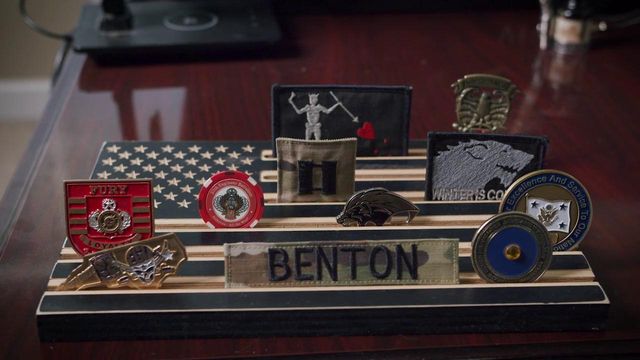Biopharma careers well suited for veterans and transitioning military members
Thanks to NCBiotech's Veterans Outreach Program, veterans and transitioning military members are finding meaningful and successful careers in biopharma manufacturing.
Posted — UpdatedDiscipline. Integrity. Leadership.
If you're a veteran or active military, you'll find these values from your days in the armed services on the line at a biopharma manufacturing facility. In fact, the life sciences community shares a common drive with veterans, transitioning military members and military spouses — a compassion to serve.
Working in biopharma manufacturing is not your average 9 to 5 job. These careers save lives. Every day, technicians and engineers work around the clock to create thousands of lifesaving medicines. People all over the world rely on these medicines to overcome disease and illness.
Each year nearly 23,000 service members transition out of the military in North Carolina. NCBiotech's Veterans Outreach Program was developed to tap into this population that has the skills needed for biopharma manufacturing careers. Already, a half dozen former military members are holding down new posts at North Carolina companies making medicines.
The VOP military internship program began as a pilot between NCBiotech, Fort Bragg, Central Carolina Community College and Pfizer. These partners worked together to deliver an on-the-job internship program including the BioWork training program, resulting in the placement of eight individual military internships that lead to six full-time hires at Pfizer. Early success of the VOP quickly led to additional classes of military internships. More local biomanufacturers and bases are participating.
John Nicolas, Army veteran and now a bioprocess technician with Pfizer, is a member of the first VOP cohort and was offered a full-time position upon completion of the on-the-job BioWork training internship program.
Nicolas offers insight into exploring a life sciences career.
"Keep an open mind and be willing to step outside of what feels comfortable," he said. "The soft skills learned in the military — strict adherence to following procedures, drive to achieve results, and problem-solving skills are highly valued."
Careers can range from manufacturing operations to engineering and facilities to supply chain logistics and warehouse/distribution operations.
"It's true that many skill assets learned in the military are directly transferrable to a career in the life sciences," said Elizabeth Ellis, director of workforce development for NCBiotech and architect of the program. "The training program that we put together allows service members to learn in a new environment while using the skill assets they've developed through their military service."
Nicolas encourages those entering civilian careers to put their skills to use.
"If continuing to serve others in your civilian career is important to you, the biopharma manufacturing industry allows you to continue to serve others while using all the skill assets you developed while serving our great country," he said. "Take the initiative to explore military internships in biopharma manufacturing or take the BioWork Certification class. I did and now I'm fully engaged in my civilian career."
To learn more, visit ncbiotech.org/veterans for information about transitioning into a biopharma manufacturing career.
• Credits
Copyright 2024 by Capitol Broadcasting Company. All rights reserved. This material may not be published, broadcast, rewritten or redistributed.






